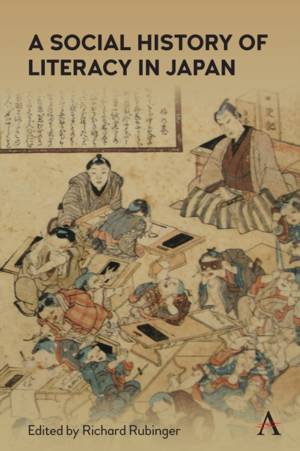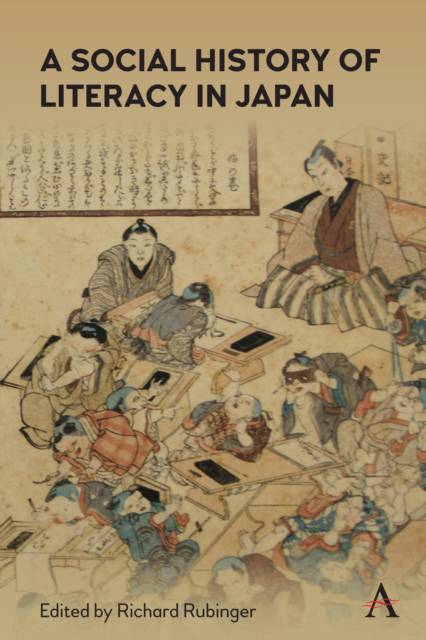
- Afhalen na 1 uur in een winkel met voorraad
- Gratis thuislevering in België vanaf € 30
- Ruim aanbod met 7 miljoen producten
- Afhalen na 1 uur in een winkel met voorraad
- Gratis thuislevering in België vanaf € 30
- Ruim aanbod met 7 miljoen producten
A Social History of Literacy in Japan
Omschrijving
Despite the great interest in and the availability of enormous literature about education in Japan, this book is a translation of the first work written in Japanese on the history of literacy in Japan. The authors are each accomplished scholars of Japanese educational history, and each provides solid empirical evidence and original analyses of literacy in their own particular specialty, from Heian aristocrats, to religious sects in the medieval period, to Christian believers in the sixteenth century, to a variety of farmers and merchants in early modern times.
The book is unique in the sense that literacy in Japan is analysed with a high degree of methodological sophistication backed by empirical evidence in the form of "signatures" or personal marks on documents, on so many topics. The result is to show the often fallacious and easy generalizations made about literacy in Japan and to show that evidence exists to enable more robust empirical investigations to be undertaken. This book will make it possible for the Japanese case to be used more meaningfully worldwide and in comparative studies of literacy.
Specificaties
Betrokkenen
- Vertaler(s):
- Uitgeverij:
Inhoud
- Aantal bladzijden:
- 250
- Taal:
- Engels
Eigenschappen
- Productcode (EAN):
- 9781785277016
- Verschijningsdatum:
- 31/03/2021
- Uitvoering:
- Hardcover
- Formaat:
- Genaaid
- Afmetingen:
- 152 mm x 229 mm
- Gewicht:
- 530 g

Alleen bij Standaard Boekhandel
Beoordelingen
We publiceren alleen reviews die voldoen aan de voorwaarden voor reviews. Bekijk onze voorwaarden voor reviews.








